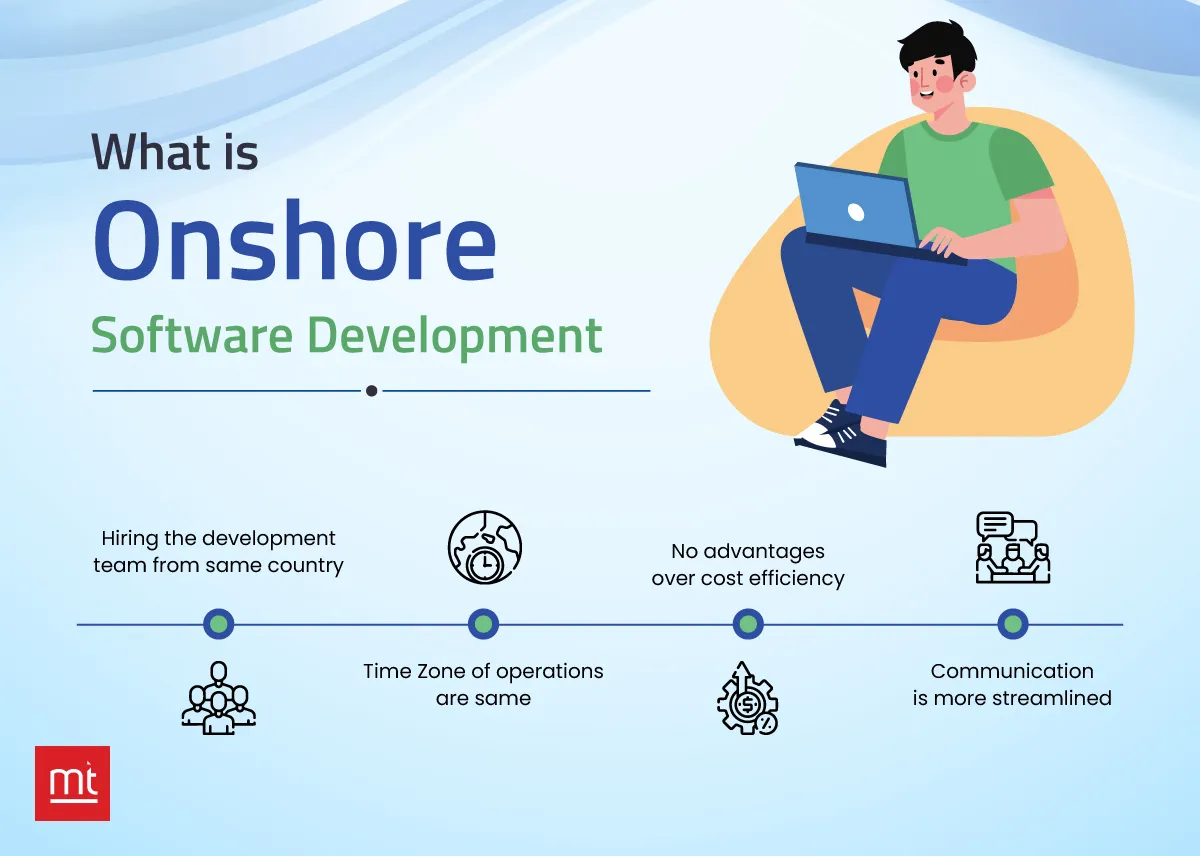BLOGS
Offshore vs Onshore Software Development: A Detailed Comparison
In the world of online marketing, not all products and services are created equal. Some cost $20... others $20,000. That’s where high ticket digital marketing comes in—a powerful strategy focused on selling premium-priced offers through strategic, value-driven marketing. If you're a coach, consultant, service provider, or entrepreneur aiming to scale your business with fewer, more profitable sales, this guide is for you. Let’s break down what high ticket digital marketing is, why it matters, how it works, and how much it costs in 2025.

What is Offshore Software Development?
Offshore software development means hiring a development team located in another country, usually in a different continent. For example, a Saudi company may work with developers from Asia, Eastern Europe, or Latin America. This model is widely used to reduce development costs while still accessing experienced professionals.
Advantages of Offshore Development:
- ✓ Cost Savings: Offshore services often come at a lower price compared to hiring local developers in Saudi Arabia. Labor costs in countries like India or Ukraine are typically lower.
- ✓ Access to Global Talent: Offshore development gives you access to a large pool of skilled developers who specialize in various technologies, from AI and blockchain to mobile app development.
- ✓ Scalability: It’s easy to scale your project up or down without going through lengthy recruitment processes.
- ✓ Round-the-Clock Progress: Due to time zone differences, your offshore team can continue working while you sleep—potentially speeding up project delivery.
Challenges of Offshore Development
Offshore development offers unique advantages, but also comes with challenges that need proactive strategies to overcome:
-
⚠
Communication Barriers: Language and cultural differences can cause misunderstandings without strong communication frameworks.
-
⌚
Time Zone Gaps: Collaborating across multiple time zones can delay updates, meetings, and feedback cycles.
-
🔧
Quality Control: Ensuring consistent output quality can be difficult without clear expectations, standards, and testing protocols.
ⓘ Successful offshore teams invest in clear processes, effective tools, and timezone-aware collaboration practices.
What is Onshore Software Development?
Onshore software development refers to working with a development team located in the same country—in this case, Saudi Arabia. This model is ideal for businesses that prefer direct communication, quick updates, and local market understanding.

Advantages of Onshore Development:
- ✓ Clear Communication: Language and cultural similarities make collaboration smoother and reduce the risk of miscommunication.
- ✓ Faster Response Times: Working in the same time zone means quicker meetings, faster issue resolution, and more control over the project.
- ✓ Knowledge of Local Market: Onshore teams better understand local regulations, user behavior, and business requirements.
- ✓ Easier Collaboration: You can meet face-to-face with your developers when needed, improving trust and transparency.
Challenges of Onshore Development
While onshore development offers better communication and local expertise, it also comes with a few challenges that businesses should consider:
-
💸
Higher Costs: Hiring local software developers in Saudi Arabia often comes with higher price tags compared to offshore alternatives.
-
🔍
Limited Talent Pool: Although the IT sector is growing, the number of highly skilled developers locally may be smaller than what’s available globally.
Offshore vs Onshore Software Development: Key Differences
| Factor | Offshore | Onshore |
|---|---|---|
| Cost | Lower | Higher |
| Communication | May face barriers | Smooth and Clear |
| Time zone | Time gap issues | Same time zone |
| Market Knowledge | May lack local understanding | Familiar with local market |
| Talent pool | Global Access | Limited to local talent |
| Collaboration | Mostly reamote | Easier in-person interaction |
Which Model is Best for Saudi Businesses?
Choosing between offshore and onshore software development depends on your project’s goals, budget, and collaboration needs. Here's a quick comparison to help guide your decision:
Go Offshore If:
- ➤ Your top priority is reducing costs.
- ➤ You need access to technologies not easily available in Saudi Arabia.
- ➤ You are comfortable managing remote teams and time zone differences.
Go Onshore If:
- ➤ You need frequent and real-time collaboration.
- ➤ Your project involves sensitive data or local compliance.
- ➤ You prefer teams who understand your culture and language.
Hybrid Model: A Growing Trend in Saudi Arabia
Many companies in Saudi Arabia are now adopting a hybrid model—combining both offshore and onshore teams to leverage the strengths of each.
For example, project planning and coordination might be handled by local teams who understand the market and client needs, while development and testing are outsourced to offshore teams to reduce costs and tap into broader expertise.
This approach creates a balance between cost-efficiency, quality output, and effective communication—making it an increasingly popular choice among Saudi businesses.
Conclusion
When deciding between offshore and onshore software development in Saudi Arabia, think about your business goals, budget, timeline, and the complexity of your project. Offshore development can significantly reduce costs and speed up development, while onshore development offers smoother communication and better control.
iDestination offers tailored offshore and onshore software development services in Saudi Arabia, helping businesses build secure, scalable digital solutions. Get expert guidance and local support to bring your project to life.